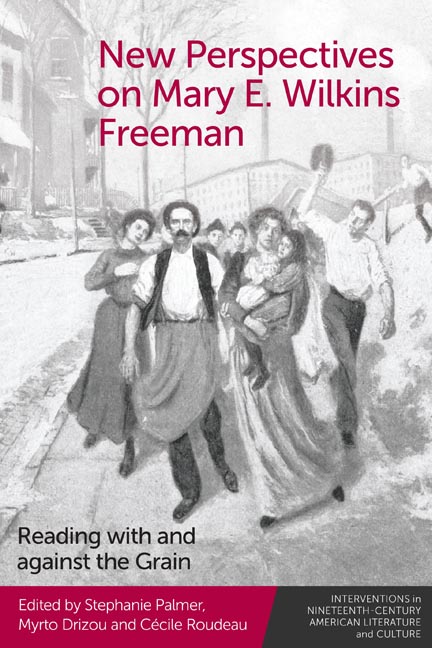Book contents
- Frontmatter
- Contents
- List of Figures
- Acknowledgments
- Contributors
- Reading Freeman Again, Anew
- Part I Kinship Outside of Normative Structures
- Part II Violent, Criminal, and Infanticidal: Freeman’s Odd Women
- Part III Women’s Work: Capital, Business, Labor
- Part IV Periodization Reconsidered
- Afterword: Why Mary E. Wilkins Freeman? Why Now? Where Next?
- Index
13 - Underground Influence: Sylvia Townsend Warner’s Pastiche of Mary E. Wilkins Freeman
Published online by Cambridge University Press: 20 October 2023
- Frontmatter
- Contents
- List of Figures
- Acknowledgments
- Contributors
- Reading Freeman Again, Anew
- Part I Kinship Outside of Normative Structures
- Part II Violent, Criminal, and Infanticidal: Freeman’s Odd Women
- Part III Women’s Work: Capital, Business, Labor
- Part IV Periodization Reconsidered
- Afterword: Why Mary E. Wilkins Freeman? Why Now? Where Next?
- Index
Summary
Of course a poet might be influenced by, or could himself or herself influence, a writer one has never heard of and who was not widely read (or read at all), but this would necessarily limit both the interest of the claim of influence and also the pleasure of detecting, or suspecting, echoes and allusions.
Marjorie Garber, “Over the Influence”Influence thus provides a way of discussing the overtly singular within the plural or universal, and distinguishes instead of relativizes the orders of things.
Mary Orr, Intertextuality: Debates and ContextsFreeman impressed, repelled, and motivated American women writers like Edith Wharton and Kate Chopin. Freeman’s influence makes her more important to twentieth-century literature than critics normally account for. These writers’ interest in Freeman proves that her accomplishment went underground, but survived, during the period between her death in 1930 and her recovery in the 1970s. Freeman also influenced the British writer Sylvia Townsend Warner. Warner (1893–1978) was active from the 1920s until the 1970s. She is more popular with lesbian and communist enthusiasts than canonical critics of high modernism.
In 1966, Warner published an essay on Freeman, “Item, One Empty House,” in The New Yorker, a magazine Warner referred to as her “gentleman friend, my regular,” a joke that sexualized her economic arrangement with the magazine that benefitted her and her partner Valentine Ackland so decisively (Rattenbury 146). In the more than 150 fictional and nonfictional contributions that Warner made to The New Yorker between the 1930s and the 1970s, “Item, One Empty House” is the only piece that discusses an American writer. This singular piece reflects on where sexually nonconforming women writers fit in national literary histories. It offers a theory and model for transatlantic female influence. After using it to demonstrate that Freeman is an important precursor to Warner, I compare Warner’s fiction of the 1960s to Freeman’s most characteristic fiction of A New England Nun and Other Stories (1891), the Freeman volume Warner claims to have picked up by chance, and to Freeman’s more sexually explicit story, “Evelina’s Garden” (1896).
- Type
- Chapter
- Information
- New Perspectives on Mary E. Wilkins FreemanReading with and against the Grain, pp. 236 - 252Publisher: Edinburgh University PressPrint publication year: 2023



